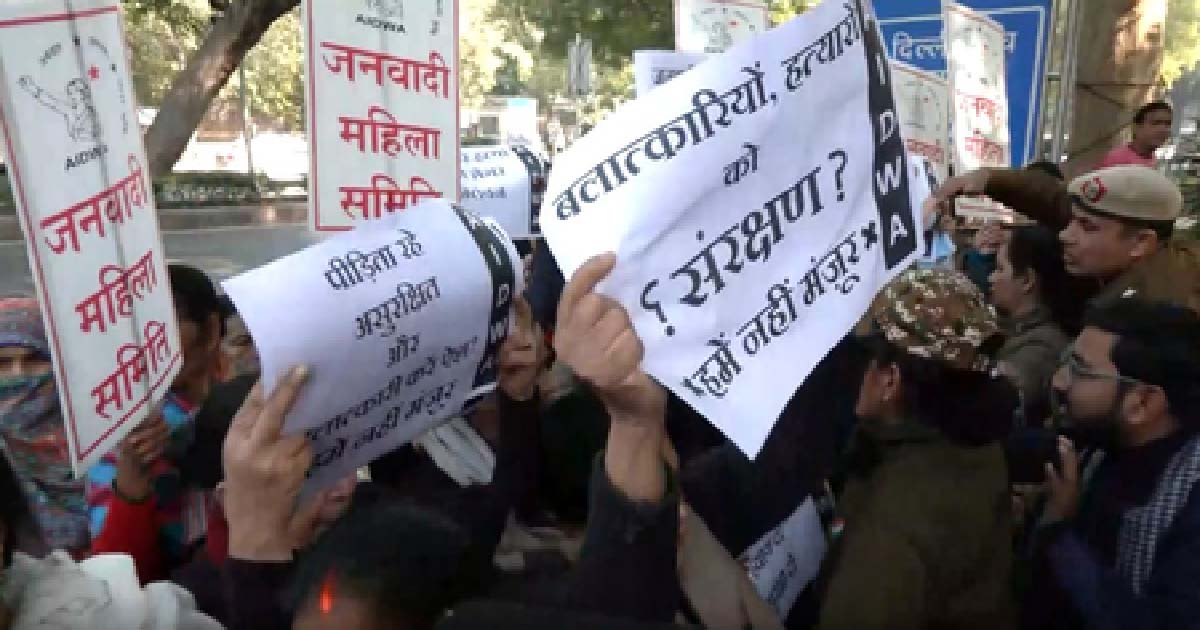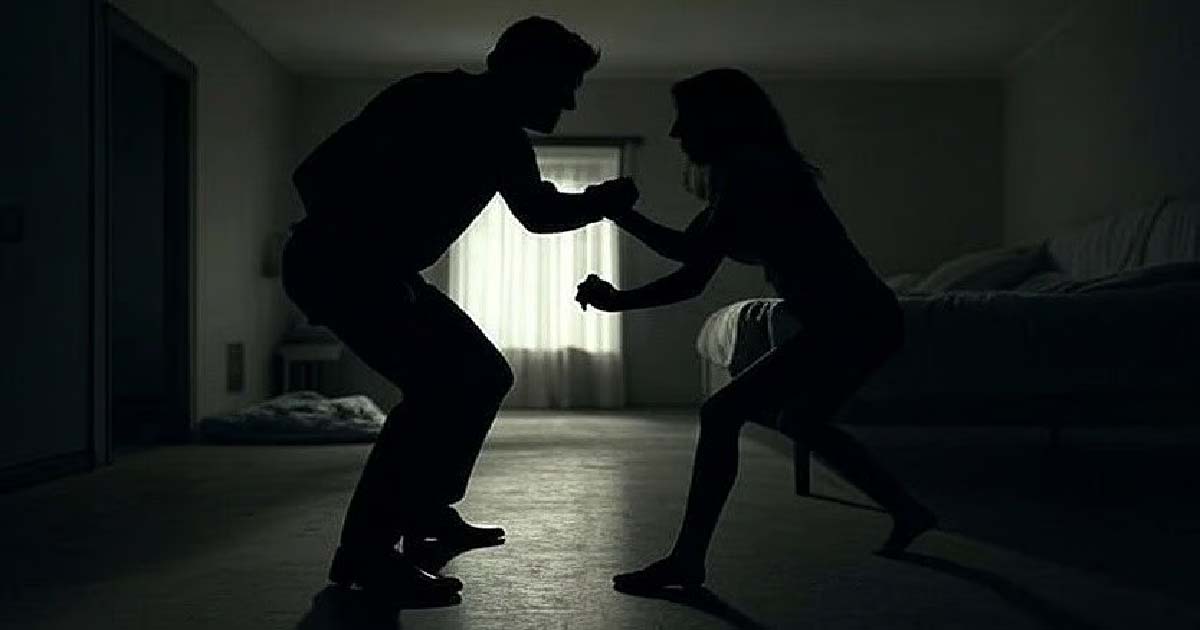Crime
Arrests of facilitators have opened Pandora’s Box

A series of arrests, made by the Uttar Pradesh Anti-Terrorist Squad (UP-ATS) and Kolkata Special Task Force (STF) from different parts of the state in the last three months, have opened up the Pandora’s Box. After interrogating the arrested people, mainly facilitators, the investigators have traced mammoth financial transactions to accounts of the human trafficking syndicate, which smuggled Bangladeshis and members of the ethnic Muslim Rohingya community into India through the porous West Bengal border and then packed them off abroad with forged passports and Hindu identities.
In the last three months, the UP-ATS in close collaboration with the Kolkata STF, have arrested 21 people, including four facilitators, six conduits and the mastermind Mithun Mandal. Mandal along with Shaon Ahmed, Mominur Islam and Mahendi Hasan were arrested from the Deen Dayal Upadhya Railway Station, Mughalsarai, in October.
According to sources in the UP-ATS, Mandla who is now on transit remand in Lucknow lived life kingsize with lavish spending, five-star stays and foreign jaunts, but did not make assets to avoid taxman’s glare. Expensive apparels pegged at lakhs of rupees, five-star hotel bills and passports with stamped visas of exotic European and Southeast Asian destinations were seized.
“They don’t stay at one place and keep traveling in Southeast Asian countries and stay in rented apartments,” said one officer.
The UP-ATS that busted the network with international linkages, found over Rs 10 crore transactions in accounts of facilitators, middlemen and kingpins in a one-year span.
An informed senior ATS officer said, multiple bank accounts of Mandal, show a money trail of crores of rupees, adding that if total funds flow to the syndicate was calculated, it crossed Rs 10 crore in less than 12 months.
The facilitators included Ratan Mandal, Sameer Mandal, Noor Alam and Mohammad Jameel – all arrested from several places in West Bengal.
Explaining their modus operandi, sources in the Kolkata STF said kingpin Mithun Mandal used to operate a travel agency named European Tour and Travels in Bardhaman district of West Bengal.
His aide, Mahfuzur, used WhatsApp to communicate with clients in Bangladesh and Myanmar, who were interested in going abroad. He created a WhatsApp group (‘Only Bro’) and operated it under the name, Tony.
“Those ready to infiltrate and move abroad were asked to cough up Rs 5-7 lakh, depending on the country of their choice,” an STF officer said.
Once smuggled into India, the syndicate would provide them with fake Hindu identities and forged documents. Then they would be put across to middlemen in Gulf, South Africa and the UK. The gang would pocket the fee after spending just Rs 50,000-70,000 on forging documents.
Though the investigators are yet to connect the illegal immigration with any kind of terror design but what is keeping the investigators and the agencies on the tenterhooks is the growing trend of infiltrating into the country might be used effectively to push in terrorists into the Indian soil. The investigators are of opinion that the Covid-induced lockdowns and the subsequent unemployment which is making the work of these terror groups easier.
Taking advantage of the porous border with Bangladesh and unemployment, international terror groups like JMB, Ansarullah Faction and even the Islamic State are trying to spread their network in West Bengal.
The aim is to make the state the headquarters of the terror activities in entire eastern India.
Sometimes via direct interaction and at times through online, they are targeting smart but unemployed young boys and girls in the state.
The National Investigation Agency (NIA) and the Kolkata Police have secured this information from the three JMB terrorists who were arrested by the STF sleuths recently from a colony in the southern outskirts of Kolkata.
Crime
मुंबई के पायधोनी में करोड़ों रुपये के ड्रग्स के साथ 9 आरोपी गिरफ्तार, इनमें 3 महिला तस्कर भी शामिल

मुंबई : ड्रग्स के खिलाफ एक बड़े ऑपरेशन में, पायधोनी पुलिस ने 1 करोड़ रुपये से ज़्यादा की हेरोइन ज़ब्त करने और दो पुरुष और दो महिला ड्रग पेडलर को गिरफ्तार करने का दावा किया है। जानकारी के मुताबिक, 16 दिसंबर को दोपहर 2:30 बजे पायधोनी पुलिस स्टेशन की सीमा में पी.डी.मेलो रोड पर एक सर्च के दौरान, 37 साल के राम नटवर ठक्कर और 27 साल के वसीम सैयद के पास से 326 ग्राम से ज़्यादा हेरोइन बरामद की गई। आरोपियों को गिरफ्तार कर लिया गया और उन पर एनडीपीएस एक्ट के तहत मामला दर्ज किया गया। जांच के दौरान, आरोपियों ने बताया कि वे ड्रग्स कहां से लाए थे। उसके बाद, पुलिस ने 30 साल की रुबीना सैयद को गिरफ्तार किया। उसने बताया कि वह शबनम शेख के संपर्क में थी। उसे राजस्थान के अजमेर से गिरफ्तार किया गया। जब यह पता लगाने के लिए जांच की गई कि इन दोनों महिलाओं ने ड्रग्स कहां से हासिल किए थे, तो शबनम शेख को ड्रग्स बेचने वाले व्यक्ति, मुस्कान समीउल्लाह शेख 19 साल को मस्जिद बंदर इलाके से गिरफ्तार किया गया। पुलिस को जानकारी मिली थी कि अब्दुल कादिर शेख और मेहरबान अली मुस्कान को ड्रग्स सप्लाई करने आ रहे हैं, जिस पर पुलिस ने जाल बिछाकर अब्दुल कादिर को गिरफ्तार कर लिया। उसके पास से ड्रग्स भी बरामद हुए। जोगेश्वरी में उसके घर की तलाशी के दौरान नवजीत गुलाबी खान, शारिक सलमानी, समद गुलाबी के पास हेरोइन मिली। उनके पास से कुल 33 करोड़ से ज़्यादा कीमत के ड्रग्स ज़ब्त किए गए। इस ऑपरेशन में पुलिस ने तीन महिलाओं और 6 पुरुषों को गिरफ्तार किया और करोड़ों रुपये के ड्रग्स ज़ब्त किए। यह ऑपरेशन मुंबई पुलिस कमिश्नर देविन भारती के निर्देश पर डीसीपी विजय सागरे ने किया।
Crime
Family members of Unnao rape survivor, activists protest outside Delhi HC against Sengar’s bail

New Delhi, Dec 26: The family members of the Unnao rape survivor, along with women’s rights activists, on Friday staged a protest outside the Delhi High Court against the suspension of the sentence of Kuldeep Sengar, who was convicted in the Unnao rape case. The demonstrators raised slogans and expressed anger over the court’s decision to grant him conditional bail.
Protesters gathered near the court premises, holding placards and chanting slogans such as “Peedit rahe asurakshit aur balatkari kare aish? Humein nahi manzoor,” in support of the survivor and demanding strict action against the convicted former MLA. The protesters said the decision had “shaken public faith and sent a wrong message regarding crimes against women”.
Speaking to Media, the survivor’s mother said she still had faith in the justice system and the Supreme Court.
“If the Public Prosecutor stands with me and supports my lawyer, and if the CBI Public Prosecutor also takes a firm stand, there is hope. Honestly, I do not have much faith in the CBI, but I do have faith in the Public Prosecutor. I trust the Supreme Court and will keep knocking on its doors,” she said.
She further added that the bail should be cancelled and demanded the strictest punishment for the guilty.
“Any MLA, irrespective of religion or caste, who commits such a crime against a girl or a minor should be given capital punishment. That is all we want. I believe we will get justice,” she said.
Social activist Yogita Bhayana also criticised the system, stating that the survivor had been failed at multiple levels.
“First, she was raped and then gang-raped by a powerful person. It was not an ordinary criminal, but someone with influence. When a powerful person is involved, the system is often manipulated. It is very unfortunate that someone like Mr Sengar, who was extremely powerful, managed to get relief,” she said.
Bhayana added that activists would continue their fight for justice.
“We are seeking relief, and we should get it. If we do not get relief here, we will approach the Supreme Court,” she said.
The Delhi High Court on Tuesday suspended the jail sentence of Sengar.
A bench comprising Justices Subramonium Prasad and Harish Vaidyanathan Shankar granted him bail, directing him to furnish a personal bond of Rs 15 lakh along with three sureties of the same amount.
Crime
Mumbai Crime: Malwani Doctor Arrested For Allegedly Molesting Minor Girl In Clinic; Unauthorised Practice Suspected

Mumbai: The Malwani police have arrested a 44-year-old doctor following allegations of sexual abuse and molestation involving a 12-and-a-half-year-old girl. The incident reportedly took place within the confines of his clinic during a medical examination, sparking concerns over patient safety and the legitimacy of the practitioner’s medical credentials.
The victim, a resident of the local area, had visited the clinic alone to seek treatment for a lip fracture. , the doctor, a resident of Kandivali who has operated the Malwani-based clinic for several years, allegedly exploited the situation.
The minor alleged that during the procedure, the doctor instructed her to lie down and proceeded to touch her inappropriately. The victim reported experiencing severe mental distress and embarrassment following the encounter, which led to the formal complaint.
Upon receiving the complaint, Police Sub-Inspector Shivaji Mohite registered the initial First Information Report. The case was later handed over to Assistant Police Inspector Prashant Mundhe, who led the investigation and moved to take the accused into custody. According to the report, the 44-year-old has been booked under relevant sections of the Bharatiya Nyaya Sanhita (BNS) and Sections 10 and 12 of the Protection of Children from Sexual Offences (POCSO) Act.
Beyond the criminal charges of assault, the investigation has expanded into the doctor’s professional background. Initial inquiries revealed that while the accused holds a degree in acupuncture, he was allegedly performing a wide range of medical treatments for which he may not have been authorized. Police officials stated that they are currently in the process of verifying all degrees and certificates displayed at the clinic to determine if the accused was practicing medicine beyond his legal scope. The accused was produced before the sessions court on December 24.
-

 Crime3 years ago
Crime3 years agoClass 10 student jumps to death in Jaipur
-

 Maharashtra1 year ago
Maharashtra1 year agoMumbai Local Train Update: Central Railway’s New Timetable Comes Into Effect; Check Full List Of Revised Timings & Stations
-

 Maharashtra1 year ago
Maharashtra1 year agoMumbai To Go Toll-Free Tonight! Maharashtra Govt Announces Complete Toll Waiver For Light Motor Vehicles At All 5 Entry Points Of City
-

 Maharashtra1 year ago
Maharashtra1 year agoFalse photo of Imtiaz Jaleel’s rally, exposing the fooling conspiracy
-

 National News1 year ago
National News1 year agoMinistry of Railways rolls out Special Drive 4.0 with focus on digitisation, cleanliness, inclusiveness and grievance redressal
-

 Maharashtra1 year ago
Maharashtra1 year agoMaharashtra Elections 2024: Mumbai Metro & BEST Services Extended Till Midnight On Voting Day
-

 National News1 year ago
National News1 year agoJ&K: 4 Jawans Killed, 28 Injured After Bus Carrying BSF Personnel For Poll Duty Falls Into Gorge In Budgam; Terrifying Visuals Surface
-

 Crime1 year ago
Crime1 year agoBaba Siddique Murder: Mumbai Police Unable To Get Lawrence Bishnoi Custody Due To Home Ministry Order, Says Report












